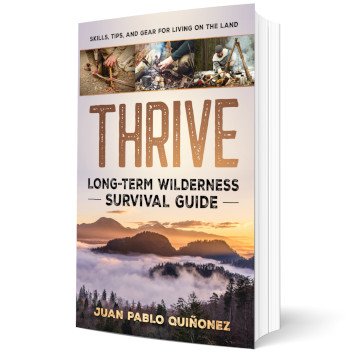Energy Return On Energy Invested
Maximizing efficiency of everything you do must become a reflex. In a long term survival situation you can’t afford to waste energy or time. Everything you do must take in consideration how much you will gain from your investment.
Some people in civilization are very mindful of the amount of calories per portion of food and the types of macro nutrients (carbs, fat, protein) that compose them. This habit and knowledge helps the wilderness survivor calculate what is worth to harvest and what uses up more energy than the calories gained.
When we were in the forest, during blueberry season, we would have to hike further and further to find new patches of berries. The blueberry bushes were the low lying type, so it took some time and energy to gather considerable amounts. We would wonder if our time might have been better spent fishing.
Efficiency is about being simple and effective; it is common sense. It important to maximize the efficiency of your strategy in the planning stages. For instance, take a gill net instead of a fishing rod. Emphasize trapping skills and gear over hunting skills and gear. Prioritize learning about wild edibles high in calories.
You Sweat, You Die
That phrase is used for extreme cold survival, but when you are in a long term scenario you must not over exert yourself either. When your body is under nourished it naturally becomes more efficient by reducing its energy expenditure; not only because you loose weight but because the body starts functioning in different ways. Like your body, you too must change your behavior and work at a slower rate. There is no bonus points for overexertion; you just waste energy and risk injury. Always take the time to analyze if there are methods that would do your work easier.
Many survival instructors think you should work at your 60%. Even though you will likely have to exert your maximum effort for short periods of time, you must make an effort to stay at your sixty percent at all times. Working at a pace that keeps your heart rate at its 60% also enables your body to feed of your fat instead of using your quick access reserves. This slow pace makes your muscles more efficient, and causes less fatigue. Besides, you can work for very long periods of time at a slower pace; whereas a quick pace will take its toll very quickly.


